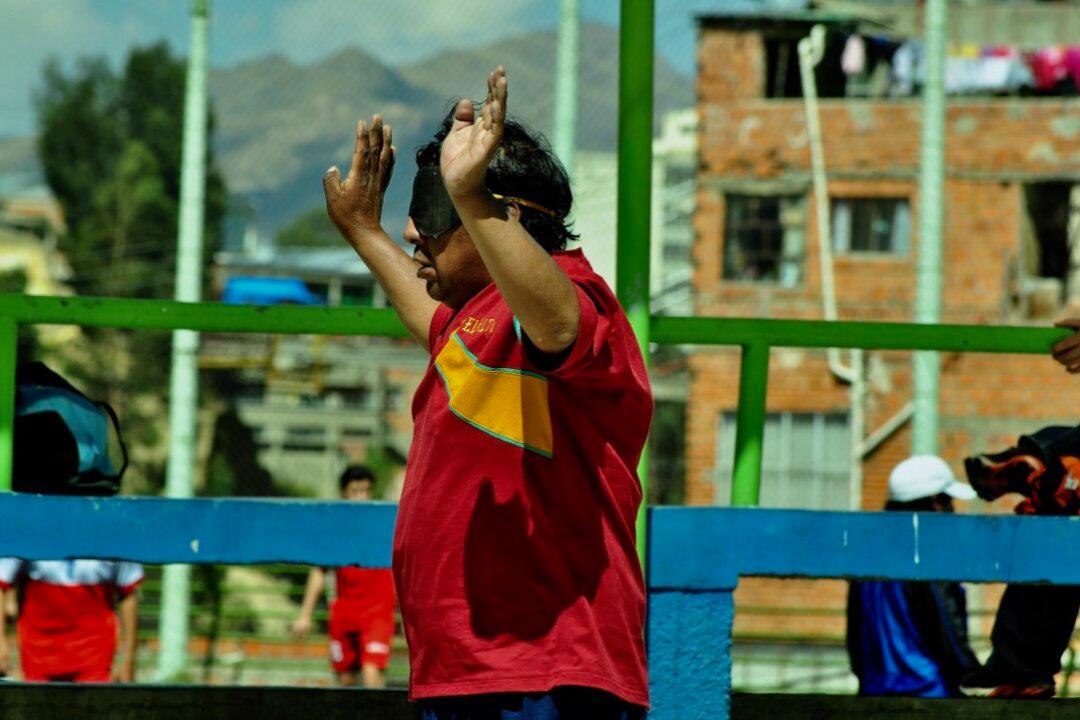“It is very difficult to play ‘fulbito’ (indoor soccer) because we do not see. Sometimes we get hurt, but you always want to win and share with your teammates.” Those are the words of Genaro Limachi 50 minutes before entering the field to defend the colors of his club “10 de Abril” in the city of La Paz, Bolivia.
Genaro is a defender and captain of his team. His leadership stands out because he always gives orders to his teammates, and being the most experienced, the other players obey his instructions. He is not a very technical player, but his endurance is inexhaustible despite his age. The match ends and the rival team, “Milan” takes the victory with a 2-0 score. After the defeat, Genaro can only accept third place in this lightning indoor soccer championship, run by the Departmental Federation of Sports for People with Blindness. Teams from the cities of La Paz and El Alto participated.
